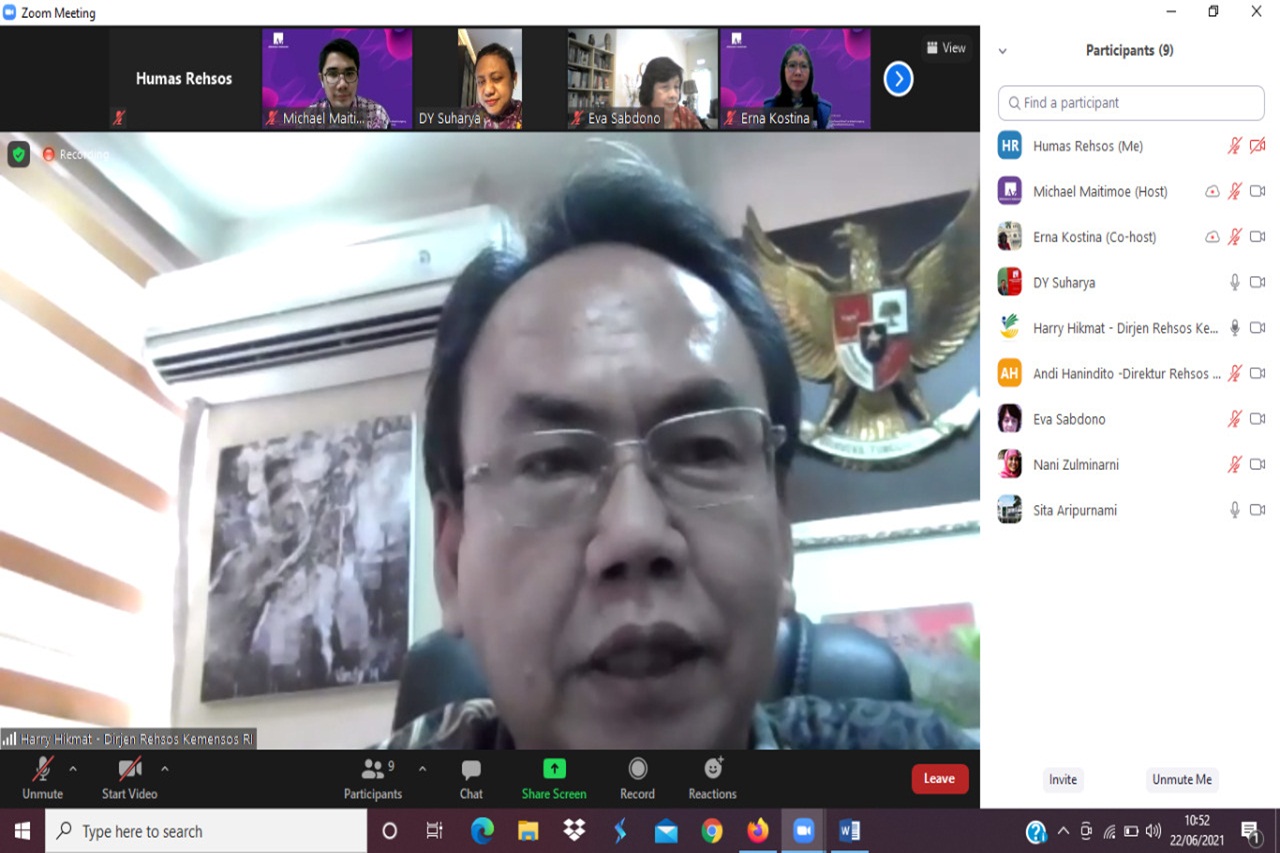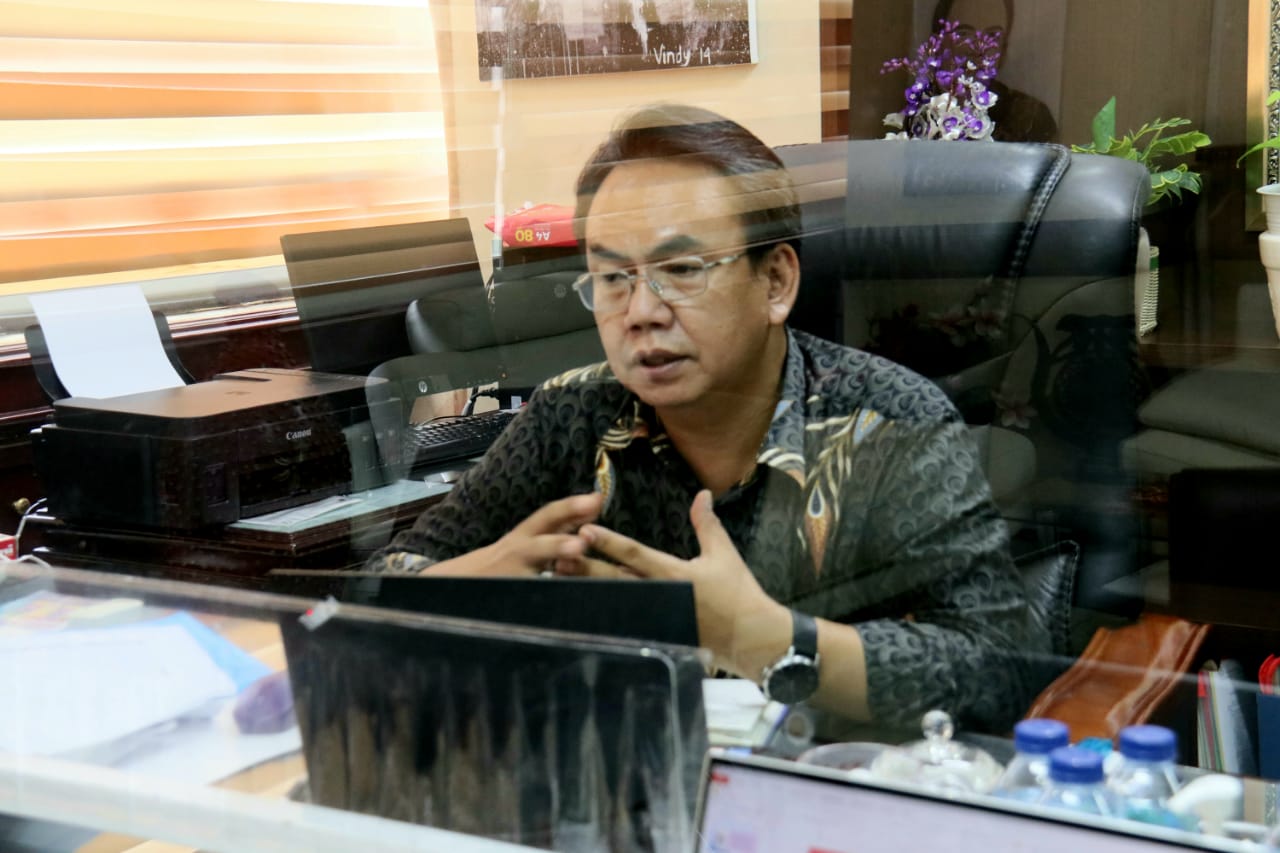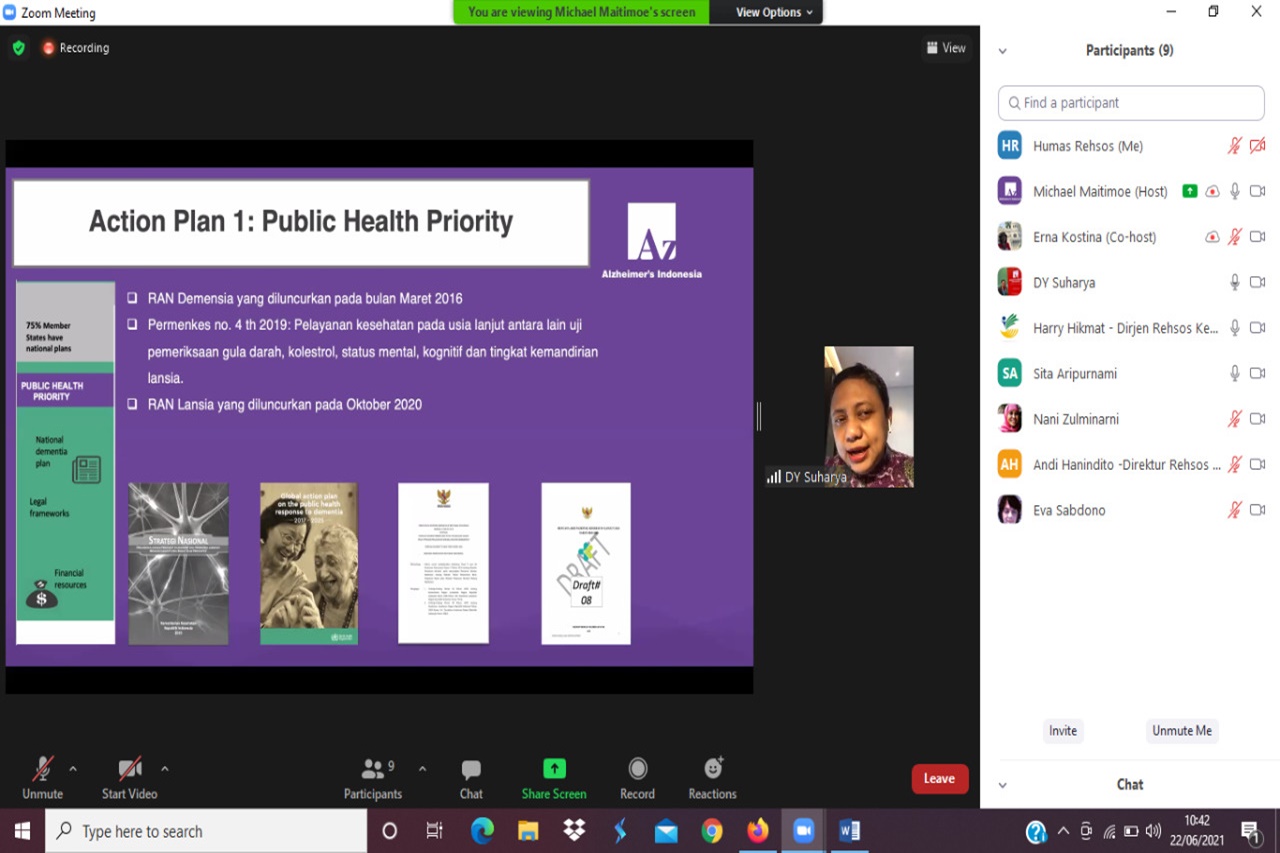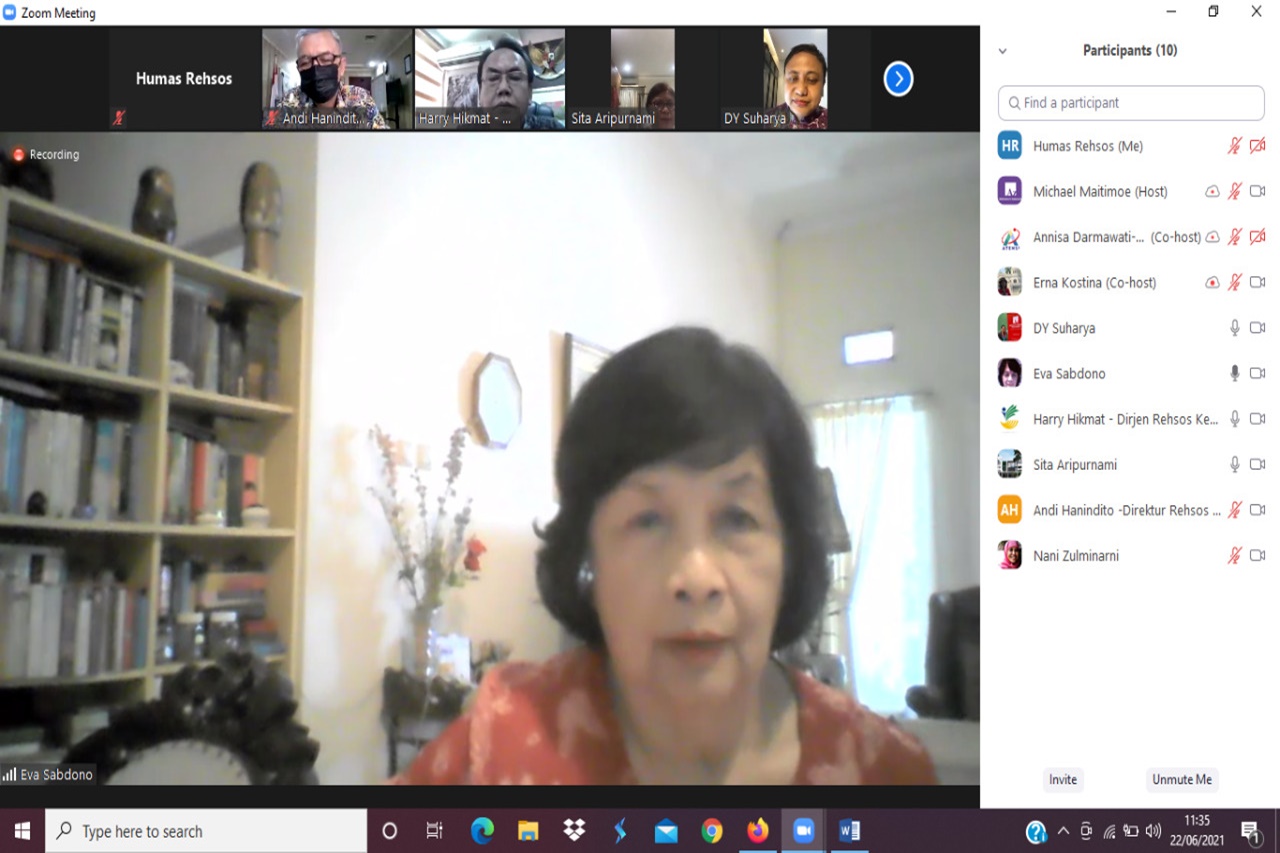JAKARTA
(June 22, 2021) - The Ministry of
Social Affairs through the Directorate General of Social Rehabilitation held a
virtual meeting with Alzheimer's Indonesia (ALZI). This agenda leads to
cooperation in providing services to the Elderly and suppressing the risk of
Dementia.
Dementia is a decrease in the brain's ability
to perform basic functions such as thinking, remembering, speaking, and making
decisions. This condition mostly occurs in the elderly. Some of the risk
factors for dementia presented by ALZI include lack of physical activity,
smoking habits, alcohol consumption, air pollution, head injuries, lack of
social relationships, lack of education, obesity, hypertension, diabetes,
depression and hearing loss.
Director General of Social Rehabilitation,
Harry Hikmat said that this issue is one of the government's concerns.
"Cooperation in providing services to the elderly to reduce the risk of
dementia needs to be done. This constructive collaboration requires
understanding between the parties, especially our understanding of ALZI's
strategic agenda," said Harry.
There are 7 Action Plans for Dementia Issues
submitted by Suhalya from ALZI, namely public health priorities, awareness and
vigilance, risk reduction, diagnosis and treatment, support for parenting,
information systems, research, and innovation.
Currently, said Harry, the Ministry of Social
Affairs is implementing the Social Rehabilitation Assistance (ATENSI) program,
one of which is for the elderly cluster, so in line with this cooperation plan,
it can strengthen the ATENSI system in its implementation in the community and
is related to the action plan submitted by ALZI.
In the future, the Minister of Social Affairs,
Tri Rismaharini, directs to create a response network equipped with Standard
Operating Procedures (SOP) if there are elderly who do health checks, it turns
out that they have hypertension or other risks, then the response network is
accessed.
Then detailing the
derivative action plan submitted by ALZI so that it can be put into practice as
soon as possible. The Ministry of Social Affairs also asked to exchange
information. "The Ministry of Social Affairs will prepare a list of social
rehabilitation centers with the head of the center who is the Person in Charge
(PIC), from ALZI conveying the regional coordinator and then being able to
communicate with each other," said Harry.
The exchange of information
is also related to the strategic agenda and other references needed by both
parties. The Ministry of Social Affairs will also share available regulations
as an initial reference for services for the elderly, such as the Minister of
Social Affairs Regulation on ATENSI and the Director General of Social
Rehabilitation for the Elderly so that derivative practices in the field can be
coordinated.
The Ministry of Social
Affairs will synergize with the Ministry of Health's piloting project in 3
provinces, namely Jakarta, Central Java, and East Java. Then make an MoU between
the Ministry of Social Affairs and ALZI on short-term concrete practices.
The government's readiness
to provide services to the elderly is realized through the revision of Law
Number 13 of 1998 concerning the Elderly, this is currently under discussion by
Commission VIII of the House of Representatives.
In future cooperation, the
Ministry of Social Affairs will also involve ALZI in various stages of drafting
the revision of Law no. 13 of 1998 to suit current conditions and be able to
answer future challenges. This will be realized through a webinar entitled the Urgency of Revision of Law no. 13 of 1998 on the Elderly and strategic issues
that can be formulated.
There are also derivative
regulations that fill the void of a comprehensive legal standard, including the
Regulation of the Minister of Social Affairs on Social Rehabilitation
Assistance (ATENSI) which is a new initiative from the Minister of Social
Affairs Tri Rismaharini that the handling of social problems must be carried
out in a comprehensive, holistic, and integrated manner to achieve independent well-being.
Harry continued the mandate
of the Minister of Social Affairs that the Ministry of Social Affairs as the
state's representative in the social sector must be able to ensure a national
system for early detection of risks faced by the elderly. Not limited to the
Center-based services, but also family and community-based.
The Ministry of Social
Affairs will also integrate programs at the Posyandu (Integrated Health Service
Post) for the elderly, namely programs that are family and community based
systems. "This elderly Posyandu already has a legal standard from the
Ministry of Health and the Ministry of Home Affairs, so how to place the
program from the Ministry of Social Affairs so that it can grow and develop and
be integrated with the services provided at the existing Posyandu," Harry
explained.
This hearing was also
attended by the Director of Social Rehabilitation for the Elderly, Andi
Hanindito and the ALZI Board of Trustees, Eva Sabdono and his staff.
 Bahasa
Bahasa
 English
English





